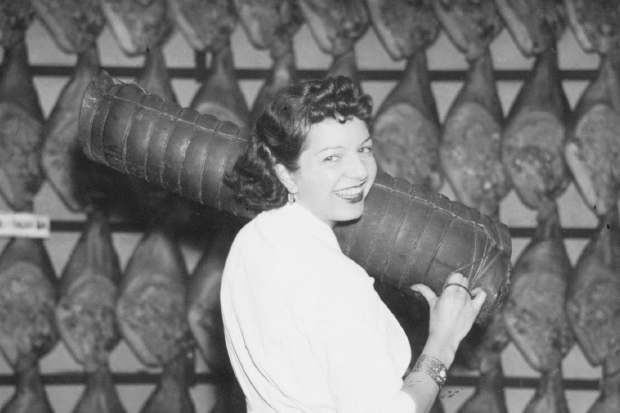My family knows that once the flaming pudding is on the table, late on Christmas Day, all meals will be picnics. Bar a few potatoes flung into the oven to bake, all cooking stops and eating becomes a forage into a squirrelled hoard of treats: the jars, tins, balsawood boxes and less pretty but functional vacpacs, inside which lie the delicate results of ‘cures’ achieved using sugar, salt, booze or smoke.
Preserves are as much a part of my Christmas as the big fat bird and Brussels sprouts, only I find them far more interesting. Often they are memories of past Christmases. We recall the specialities our forebears once loved; the image of an elderly relative eating plums in brandy while watching the telly. My grandmother, for example, felt Christmas was not Christmas without sticky Elvas plums from Fortnums; her Russian émigré husband lusted (not always successfully) after caviar.
My mother never did Christmas without buying a whole gammon then taking ages in the run-up to soak, boil and glaze it with mustard, cloves and demerara sugar. Needless to say, I do the same. Like her, I buy smoked eel and jars of mi-cuit foie gras, and search Middle Eastern shops for dates on the stalk. It nags me that we often spend our adult lives trying to be different from our parents, but at Christmas we become them.
A sort of forgiveness, in a way, but mostly it is about treating ourselves how once we were treated. If you are going to splurge — and almost all cured foods are expensive — you may as well buy what you have always known tastes good, unless you become your own artisan and make your own preserves.
This is a fast-growing hobby. Equipment is now made on a domestic scale and at weekends the scent of home-smoked pork or fish will often waft across suburban back gardens; sausage skins, Kilner jars, vacuum packers and brewing equipment fly out of the kitchenware suppliers Lakeland, and who knows who is doing a little distillation on the sly, out of reach of the regulators.








Comments
Join the debate for just £1 a month
Be part of the conversation with other Spectator readers by getting your first three months for £3.
UNLOCK ACCESS Just £1 a monthAlready a subscriber? Log in